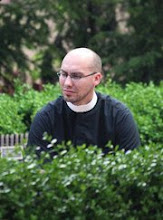Where's the Bears?

Yesterday I was watching the news and one particular story caught my attention. The powers that be are thinking of adding Polar Bears to the list of “threatened species.” If it happens, it would be a first. Why? Because the decline of the polar bears is not due to disease, or over hunting, but rather to habitat loss. In and of itself, loss of habitat is not unique. What is unique is the cause. Typically, loss of habitat is attributed to deforestation or urban sprawl. The Polar Bears are loosing their habitat because of global warming. That’s right! Because of greenhouse gases produced by each of us who drive, not only are the polar ice caps diminishing, but so too is the population of the polar bears.
This is a first, according to the story, but what I wonder is how the federal government will respond. In a normal case of habitat loss, construction must stop. They are quite strict about protecting the habitat of threatened and endangered species. But will those same stringent regulations be applied to greenhouse gas? My guess is no. There is scarcely any sign that the fed is willing to take measures to regulate the emissions of these gasses. Recently, they have balked at the suggestion that the EPA is responsible to monitor carbon monoxide (or maybe dioxide…I can’t remember which it is). Now lawsuits are being brought to force them to regulate these gasses and they are fighting tooth and nail. It will be quite interesting to watch this whole thing unfold.
I am more concerned, however, about my responsibility. I am more concerned about the church’s responsibility. In the creation story there are many questions and uncertainties. Humanity’s responsibility to creation is not one of them.
“God blessed [man and woman], and God said to them, ‘Be fruitful and multiply, and fill the earth and subdue it; and have dominion over the fish of the sea and over the birds of the air and over every living thing that moves upon the earth.’ God said, ‘See, I have given you every plant yielding seed that is upon the face of all the earth, and every tree with seed in its fruit; you shall have them for food. And to every beast of the earth, and to every bird of the air, and to everything that creeps on the earth, everything that has the breath of life, I have given every green plant for food.’ And it was so. God saw everything that he had made, and indeed, it was very good. And there was evening and there was morning, the sixth day.”
This story is the story of stewardship. It is the root of every teaching about stewardship. We, man and woman, have been given all of creation for which we must care and over which we must rule. We stand on this terrestrial ball as God’s representatives and must, therefore, rule over His creation with all of His love and care. This ruling is not an opportunity for exploitation for our own good, but rather an exercise in divine love and care. We are responsible for the polar bears!
I am not sure what this means for us. Many environmental extremists would suggest we must all cease driving our cars immediately. I hardly think that is a realistic option. Little can be changed overnight. But Martin Luther King Jr spoke of the trajectory of humanity as being long but positive. In the short term our targets are impossible, but in the long term they are quite achievable. So what can we do to rule over creation as God would rule? Here are a couple of suggestions:
1. Walk or bicycle whenever possible. It will help save the polar bears’ lives and it might just improve yours too.
2. Carpool whenever possible. What a better opportunity to show the love and hospitality of Christ than a 30 minute ride with a captive audience!
3. There are a ton of new hybrids and fuel-efficient cars coming onto the market. Take a look at them.
4. Where possible, support public transportation. We should, as a country, make it a goal to have viable public transportation in every major city, and we should incentivize its use.
5. Alternative fuels must be explored. The future is not in fossil fuels. Despite what the big oil producers (including the Fed) says, there are realistic and reliable options out there right now. Push for these to replace fossil fuel.
6. Please feel free to add your ideas here!






